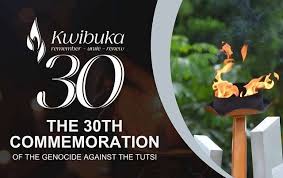
Thirty years after the Rwandan genocide, survivors continue grappling with its aftermath. The 1994 massacre saw 800,000 Tutsis killed by Hutu extremists in 100 days, scarring the nation deeply.
Pascal Kanyemera, now 45, recalls bargaining with God while hiding from killers. Frida Umuhoza witnessed her mother’s beheading and narrowly escaped death. Many found solace in faith, using it for forgiveness and peace.
Survivors emphasize remembrance, sharing stories to prevent future atrocities. They recount years of discrimination leading to the genocide, highlighting Hutu-Tutsi tensions.
Many now live far from Rwanda, carrying memories of lost homes and loved ones. Through faith, community support, and sharing experiences, they work towards healing and reconciliation.
As Rwanda marks this anniversary, survivors ensure the world remembers while striving for a peaceful future. Their journey reflects resilience, transforming trauma into positive change. By keeping memory alive and fostering understanding, they hope to prevent such horrors from recurring.
Survivors visit schools, write books, and speak to media, reopening wounds yearly. They remain committed to giving dignity back to victims. Some, like Ruhamyandekwe, took their children to Rwanda, showing them the remnants of their past lives.
Through writing and faith, many find ways to express themselves and spread awareness. They believe that remembering is crucial for reconciliation and teaching future generations, ensuring that the presence of the dead remains strong in the memory of the living.
